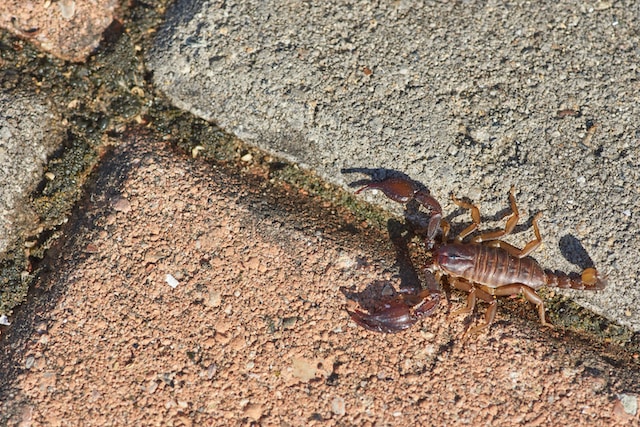Introduction: Scorpions, often associated with their menacing appearance and venomous stings, play a vital role in ecosystems as both predators and prey. While they may evoke fear in humans, understanding their ecological significance is essential for maintaining a balanced and healthy natural environment. In this article, we delve into the multifaceted role of scorpions in ecosystems as both predators and prey.
- Scorpions as Predators: Scorpions are formidable predators within their ecosystems, primarily preying on insects and other small arthropods. Their diet includes spiders, crickets, beetles, and even other scorpions. Equipped with sharp pincers and a venomous stinger, scorpions capture and immobilize their prey, ensuring their survival and maintaining a balance in the local insect population.
- Controlling Insect Populations: By actively hunting and feeding on insects, scorpions provide an important ecological service by helping control insect populations. In regions where insects are abundant, scorpions act as natural pest controllers, keeping the number of potentially harmful insects in check. This role as a top predator contributes to the overall health and stability of ecosystems.
- Interactions with Other Predators: Scorpions, while skilled predators, also face challenges from other predators in their environment. They may encounter competition from larger arachnids, such as spiders, which target similar prey. Additionally, certain bird species, reptiles, and small mammals may prey upon scorpions. These interactions shape the predator-prey dynamics within ecosystems, contributing to a complex web of relationships.
- Scorpions as Prey: Despite their predatory nature, scorpions also serve as a valuable food source for other organisms within the food chain. Small mammals, such as shrews and rodents, may actively hunt and consume scorpions. Some bird species, like owls and roadrunners, include scorpions in their diet. The availability of scorpions as prey supports the energy needs and population dynamics of these predators.
- Contribution to Decomposition: When scorpions die, they become part of the natural process of decomposition. Their bodies provide nutrients to scavengers and contribute to the recycling of organic matter in ecosystems. Decomposition plays a critical role in nutrient cycling and soil health, ultimately benefiting plant growth and the overall functioning of the ecosystem.
- Indicator Species: Scorpions can also serve as indicators of ecological health and habitat quality. As sensitive creatures, their presence or absence can provide insights into the conditions of their environment. Changes in scorpion populations can indicate shifts in the overall ecological balance, such as alterations in prey availability or habitat degradation. Monitoring scorpion populations can be a valuable tool in assessing ecosystem health.
- Research and Conservation: Understanding the role of scorpions in ecosystems requires ongoing research and conservation efforts. Scientists study the interactions between scorpions and their prey, their response to environmental changes, and their ecological importance. Protecting scorpion habitats, promoting biodiversity conservation, and minimizing human-driven disturbances are essential for preserving their vital role in ecosystems.
Conclusion: Scorpions play a dynamic and crucial role in ecosystems as both predators and prey. Their predation on insects helps control population sizes and contributes to the balance of ecosystems. Additionally, they serve as a valuable food source for other predators and play a part in the process of decomposition. Recognizing and appreciating the ecological significance of scorpions underscores the importance of their conservation and the maintenance of healthy and functioning ecosystems.




